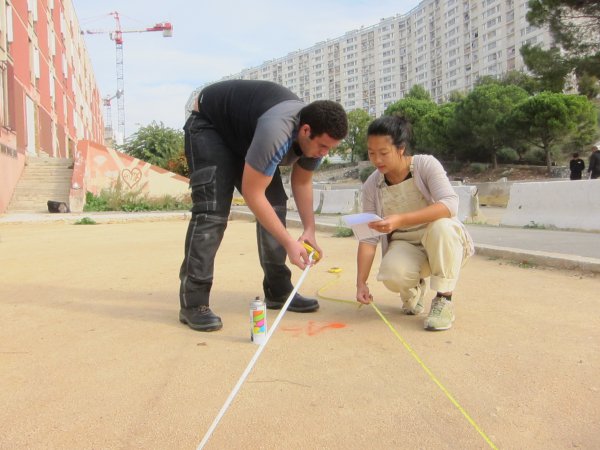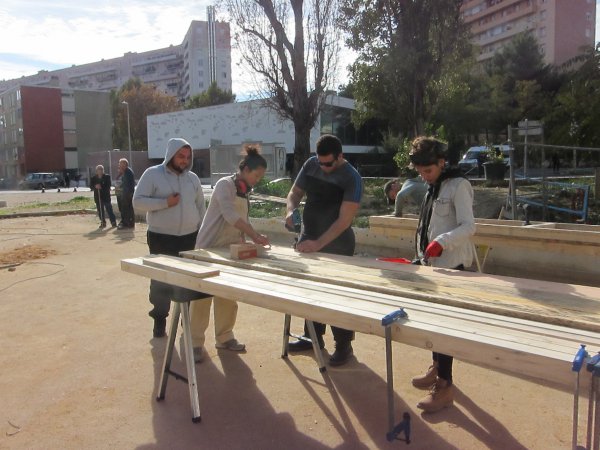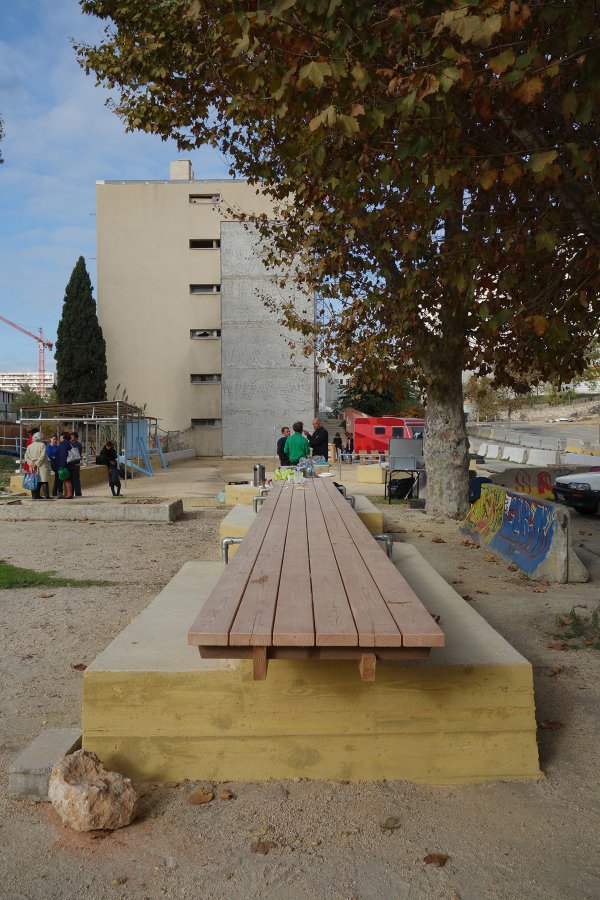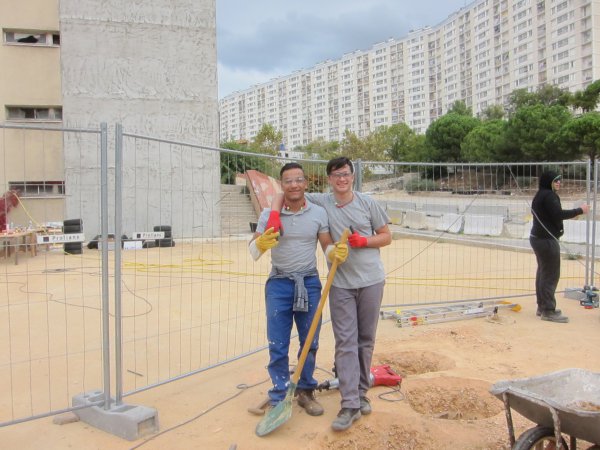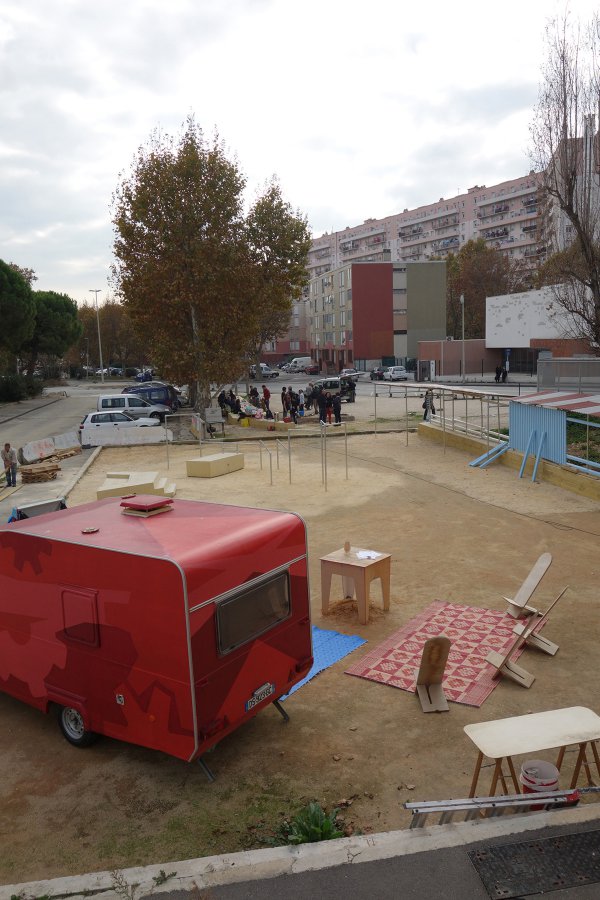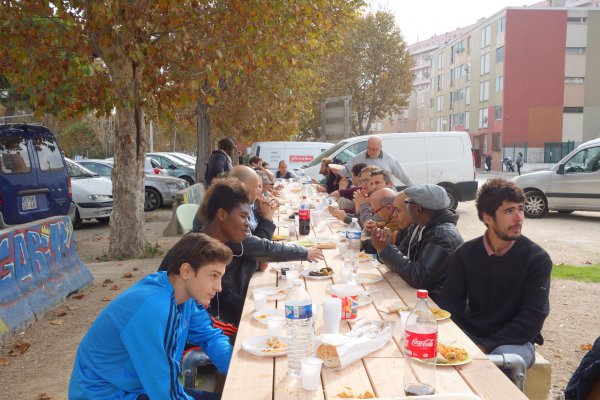Malpassé
- the town of Marseille
- region PACA
- Fondation de France
- Cabanon Vertical
Cabanon Vertical’s initial projects addressed, in the form of a poetic evocation, how residents appropriate their living environment, with their research illustrated by the construction of huts “appended” to buildings and other minimal architectural structures. These objects had a visible presence but could not be used or entered. The regulatory restrictions and property rules governing buildings prevented us from reducing the distance between the object we were building and the visitor. The relationship with space was defined by what was projected in the imagination.
Vernacular architecture also exists in cities. What would happen if the huts weren’t reserved for private use, but were given a place in the public space? How would the poetics of the sheds interact with public space to create a place?
The urban development project has become an extension of this experiment. Addressing the place of the individual in an urban area through these usages is a means of building an open, shared place conducive to individual and collective experiences. The project design phase involved observing the setting and working with users. The uses and desires of a place, along with an understanding of its environment gained from observation, serve as the starting point for the utilisation of a potential space. The sense of community informs the architecture, in terms of how the residents are already shaping their daily space or plan to in the future.
From micro-architecture to sculpture, the collective offers structures and layouts with aesthetic possibilities that are open to experimentation. Experimenting with a place is a potential avenue for art, a “way of worldmaking”.1 Shaped from the combination of one or more objects, a space and uses, the sculpture “makes” the place. Olivier Bedu leads projects in which issues related to art and architecture take shape together. His spatial poetics draw both from vernacular construction and residents’ uses and his ability to appropriate space. The hybrid nature of the functions created by these layouts and the horizontality of the shapes serve to build a collective space open to everyone’s imagination and desire to experiment.
1 Nelson Goodman, Ways of Worldmaking, Hackett Publishing, 1978.
- 70 000 €
- november 2015
- Malpassé, Marseille, France

